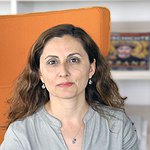Shared Sacred Landscapes and Social Forgetting in Cyprus and Turkey

This project develops the concept of social forgetting by examining its relation with changing sacred landscapes. The researcher enquires into the forms and practices of forgetting for better understanding the overlapping relationships between memory, history, and landscape. The project specifically investigates the practices of memory-making at religious and historical sites. Drawing on two-years of ethnographic fieldwork and archival research in Cyprus, the findings show how religious heritage was first transformed by obliteration during and after the ethnic conflict. Greek and Turkish Cypriots destroyed each other’s churches, mosques, and cemeteries as physical remnants of an unwanted past. The researcher then shows how these same sites were reimagined via manipulation and accommodation.
The museumification of Greek churches and the Christianization of Turkish mosques created a new symbolic geography used for the legitimization of current state policies. The project is concerned primarily with the commonly venerated sacred spaces where both Orthodox Christians and Muslims visit and assert claims. The project advances the research on shared sacred spaces by integrating both micro and macro level analysis for examining the patterns of interaction between different religious communities at the sites. The researcher aims to expand the empirical base and analytical scope of her research on Cyprus through a comparative case study of the Greek Orthodox community (Rums) in Turkey.
Affiliated Persons


